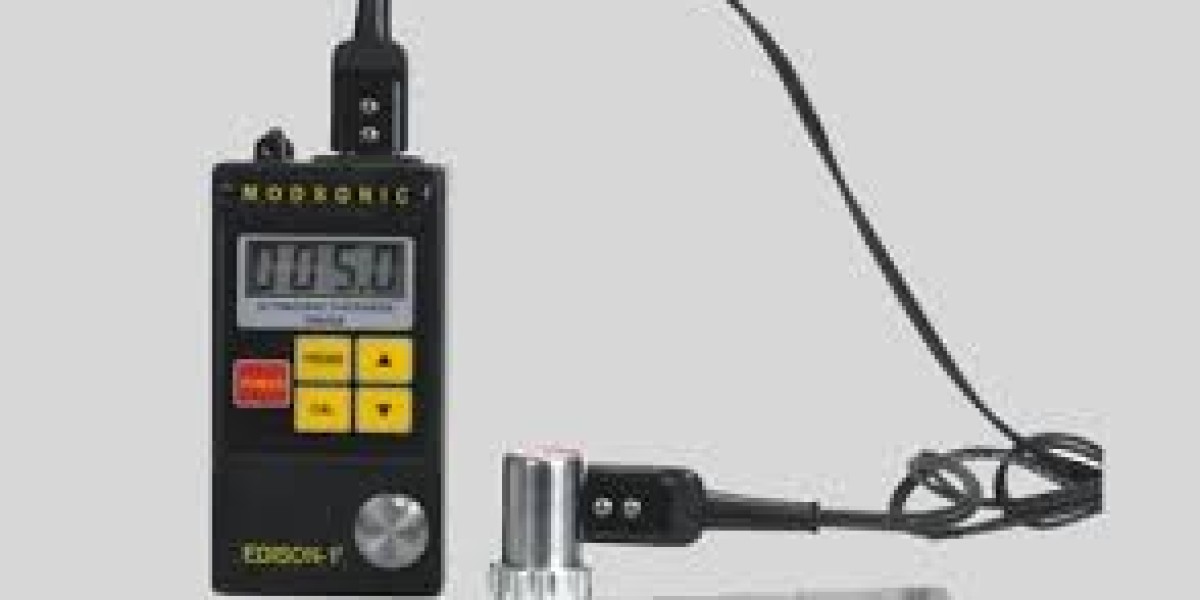The Ultimate Guide to Choosing the Right Ultrasonic Thickness Tester
Ultrasonic thickness testers are invaluable tools in various industries, providing accurate measurements of material thickness without damaging the object being tested. Whether you're new to the field or looking to upgrade your equipment, selecting the right ultrasonic thickness tester requires careful consideration of several factors. This guide will walk you through everything you need to know to make an informed decision.
What is an Ultrasonic Thickness Tester?
An ultrasonic thickness tester utilizes ultrasonic waves to determine the thickness of a material. It works by emitting high-frequency sound waves through the material, and the time it takes for the sound waves to bounce back is used to calculate the thickness. This non-destructive testing method is widely used in industries such as manufacturing, aerospace, automotive, and marine.
Key Considerations When Choosing an Ultrasonic Thickness Tester
Application Requirements: Consider the specific materials and environments where you'll be conducting thickness measurements. Some testers are designed for general-purpose use, while others are optimized for specific materials like metals, plastics, or composites.
Accuracy and Resolution: The accuracy of measurements is crucial, especially in industries where precision is paramount. Look for testers with high-resolution displays and precise measurement capabilities.
Probe Options: Different probes are suitable for different materials and thickness ranges. Check if the tester offers interchangeable probes or if it comes with probes that match your application needs.
Measurement Range: Ensure the tester can measure the thickness range required for your applications. Some testers are designed for thin materials, while others excel in measuring thick materials.
Ease of Use: A user-friendly interface and intuitive controls can significantly impact productivity and reduce training time. Look for testers with ergonomic designs and clear menu navigation.
Data Storage and Connectivity: Consider whether the tester offers data storage capabilities and how easy it is to transfer measurements to a computer or external device. This is essential for record-keeping and analysis.
Durability and Build Quality: Depending on your work environment, durability may be a critical factor. Choose testers that are robust enough to withstand harsh conditions such as high temperatures, humidity, or rough handling.
Battery Life: For portable testers, battery life is essential. Opt for models with long-lasting batteries or the option for quick recharging to minimize downtime.
Types of Ultrasonic Thickness Testers
Standard Thickness Testers: These are versatile and suitable for a wide range of materials and thicknesses.
High-Temperature Thickness Testers: Designed to withstand elevated temperatures, ideal for industries like metallurgy and foundries.
Corrosion Thickness Gauges: Specifically designed to measure thickness through coatings and corrosion layers, commonly used in maintenance and inspection applications.
Steps to Choosing the Right Ultrasonic Thickness Tester
Assess Your Needs: Determine the materials you'll be testing, the range of thicknesses involved, and any specific environmental conditions.
Research Brands and Models: Compare different brands and models based on the criteria mentioned above. Read user reviews and consult industry experts if possible.
Consider Long-Term Costs: Factor in not just the initial purchase price but also ongoing costs such as probe replacements, calibration, and maintenance.
Demo and Training: If possible, request a demo or training session from the manufacturer or supplier to familiarize yourself with the tester's operation and features.
Review Warranty and Support: Ensure the tester comes with a warranty that covers manufacturing defects and inquire about available technical support options.
Conclusion
Choosing the right ultrasonic thickness tester is essential for ensuring accurate measurements, maintaining safety standards, and optimizing operational efficiency in various industries. By understanding your specific requirements, researching available options, and considering key factors such as accuracy, probe options, and durability, you can make a well-informed decision.
Whether you're looking to upgrade your current equipment or investing in your first ultrasonic thickness tester, prioritizing quality, reliability, and suitability for your applications will help you find the best "ultrasonic thickness tester" that meets your needs and enhances your workflow.








